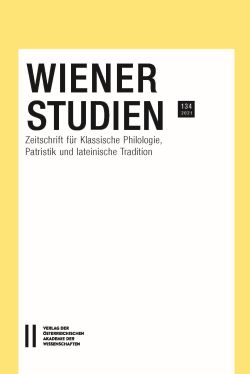
Wiener Studien 134/2021, pp. 27-50, 2021/07/12
Zeitschrift für Klassische Philologie, Patristik und lateinische Tradition
Heraclitus’ eschatology is largely derived from his concept of the soul. One groupof researchers holds that the dry souls of the wise, the well-informed and of soldiers endureafter death, while the souls of the ignorant, the sick, and of cowards perish with death in waterbecause of pleasures, disease, and obtuseness. Souls that are neither too dry nor too wet persistin the underworld. However, other specialists consider the presence of an eschatology inHeraclitus’ thinking to be unproven and contradictory. According to them, all souls cyclicallyarise from or vanish into water or fire, and the measure of their dryness or wetness has only amoral or intellectual meaning and not an eschatological one. Both of these interpretativepositions have their strong points, but they also come with some problems and questions thatare very serious and difficult to solve. It is possible that Heraclitus intentionally did not expresshimself clearly in this area, so that his statements included both positions without, in alllikelihood, giving priority to either.